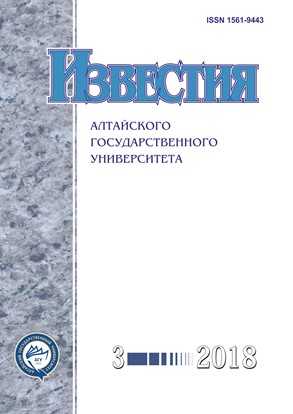The Teachings of L.A. Tikhomirov on the Supreme Authority
Abstract
The article analyzes the views of a prominent Russian thinker, Lev Aleksandrovich Tikhomirov, on the state, statehood and state (supreme) authority, as well as public administration. L.A. Tikhomirov made distinctions between the concepts of "state" and "statehood", "state" and "state authority", "state authority" and "the mechanism of government", highlighting three main forms of statehood (monarchical, democratic and aristocratic). The scientist argued that under any type of statehood, the supreme power is unified and indivisible, but separation (specialization) is characteristic of the administrative bodies it creates. The work presents the views of the scientist on the ideal form of statehood, the purpose of which is the realization of the national moral ideal. In an ideal state, the purpose of the state authority is the representation of national interests. If this is not the case, then state authority loses its meaning. The authors conclude that in the search for the "Russian idea" and the attempts to formulate the state ideology of modern Russia, the ideas of L.A. Tikhomirov are of undoubted interest.
DOI 10.14258/izvasu(2018)3-02
Downloads
Metrics
References
Тихомиров Л.А. Монархическая государственность. — М., 2004.
Тихомиров Л.А. Единоличная власть как принцип государственного строения. — Нью-Йорк, 1943 [Электронный ресурс]. — URL: http://legitimist.ru/lib/ideology/016_l_tihomirov_edinolichnaya_vlast_kak_
princip_go.pdf.
Сафронова Е.В., Карсканова С.В. «Государство»
и «государственность»: проблема терминологическо-го соотношения и определения // История государства и права.— 2014. — № 22.
Васильев А.А. История русской консервативной правовой мысли (VII-XX вв.). — Барнаул, 2011.
Исаев И.Л. Политико-правовая утопия в России (конец XIX — начало XX в.) — М., 1991.
Цыганов В.И. Идея русского самодержавия и ее развитие в творчестве Л.А. Тихомирова : дис. ... канд. юрид. наук. — Н. Новгород, 2000.
Байгушкин А.И. Консервативные политико-правовые воззрения в России во второй половине XIX — начале XX века : дис. ... канд. юрид. наук.— М., 1998.
Чичерин Б.Н. Курс государственной науки. Т. I-III. — М., 1894.
верев Н.А. Основания классификации государств в связи с общим учением о классификации: Методологическое исследование // Ученые записки императорского Московского университета. Вып. 3. — М., 1883.
Градовский А.Д. Начала русского государственного права. — Т. 1.— СПб., 1875.
Copyright (c) 2018 Е.Н. Еньшина, Н.А. Сафронов

This work is licensed under a Creative Commons Attribution 4.0 International License.
Izvestiya of Altai State University is a golden publisher, as we allow self-archiving, but most importantly we are fully transparent about your rights.
Authors may present and discuss their findings ahead of publication: at biological or scientific conferences, on preprint servers, in public databases, and in blogs, wikis, tweets, and other informal communication channels.
Izvestiya of Altai State University allows authors to deposit manuscripts (currently under review or those for intended submission to Izvestiya of Altai State University) in non-commercial, pre-print servers such as ArXiv.
Authors who publish with this journal agree to the following terms:
- Authors retain copyright and grant the journal right of first publication with the work simultaneously licensed under a Creative Commons Attribution License (CC BY 4.0) that allows others to share the work with an acknowledgement of the work's authorship and initial publication in this journal.
- Authors are able to enter into separate, additional contractual arrangements for the non-exclusive distribution of the journal's published version of the work (e.g., post it to an institutional repository or publish it in a book), with an acknowledgement of its initial publication in this journal.
- Authors are permitted and encouraged to post their work online (e.g., in institutional repositories or on their website) prior to and during the submission process, as it can lead to productive exchanges, as well as earlier and greater citation of published work (See The Effect of Open Access).








